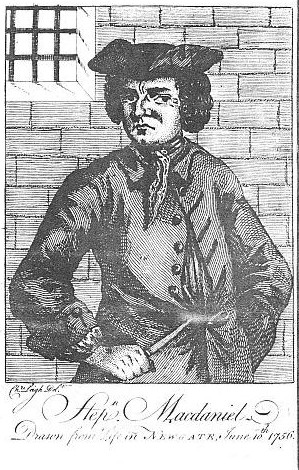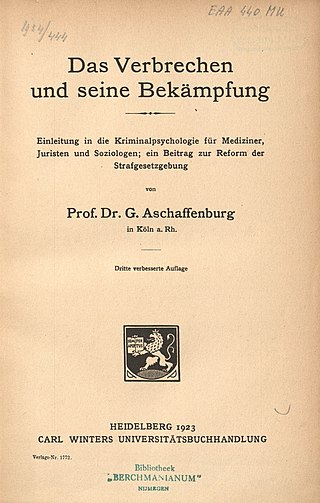
Anarcho-capitalism is an anti-statist, libertarian political philosophy and economic theory that seeks to abolish centralized states in favor of stateless societies with systems of private property enforced by private agencies, based on concepts such as the non-aggression principle, free markets and self-ownership. An anarcho-capitalist philosophy extends the concept of ownership to include control of private property as part of the self, and, in some cases, control of other people as private property. In the absence of statute, anarcho-capitalists hold that society tends to contractually self-regulate and civilize through participation in the free market, which they describe as a voluntary society involving the voluntary exchange of goods and services. In a theoretical anarcho-capitalist society a system of private property would still exist, and would be enforced by private defense agencies and/or insurance companies that were selected by property owners, whose ownership rights or claims would be enforced by private defence agencies and/or insurance companies. These agencies or companies would operate competitively in a market and fulfill the roles of courts and the police, similar to a state apparatus. Some anarcho-capitalist authors have argued that slavery is compatible with anarcho-capitalist ideals.

The Machinery of Freedom is a nonfiction book by David D. Friedman that advocates an anarcho-capitalist society from a consequentialist perspective.

In criminology, the broken windows theory states that visible signs of crime, antisocial behavior and civil disorder create an urban environment that encourages further crime and disorder, including serious crimes. The theory suggests that policing methods that target minor crimes, such as vandalism, loitering, public drinking and fare evasion, help to create an atmosphere of order and lawfulness.

More Guns, Less Crime is a book by John R. Lott Jr. that says violent crime rates go down when states pass "shall issue" concealed carry laws. He presents the results of his statistical analysis of crime data for every county in the United States during 29 years from 1977 to 2005. Each edition of the book was refereed by the University of Chicago Press. As of 2019, the book is no longer published by the University of Chicago Press. The book examines city, county and state level data from the entire United States and measures the impact of 13 different types of gun control laws on crime rates. The book expands on an earlier study published in 1997 by Lott and his co-author David Mustard in The Journal of Legal Studies and by Lott and his co-author John Whitley in The Journal of Law and Economics, October 2001.

Criminal justice is the delivery of justice to those who have been accused of committing crimes. The criminal justice system is a series of government agencies and institutions. Goals include the rehabilitation of offenders, preventing other crimes, and moral support for victims. The primary institutions of the criminal justice system are the police, prosecution and defense lawyers, the courts and the prisons system.

Restorative justice is an approach to justice that aims to repair the harm done to victims. In doing so, practitioners work to ensure that offenders take responsibility for their actions, to understand the harm they have caused, to give them an opportunity to redeem themselves, and to discourage them from causing further harm. For victims, the goal is to give them an active role in the process, and to reduce feelings of anxiety and powerlessness.

Law and economics, or economic analysis of law, is the application of microeconomic theory to the analysis of law. The field emerged in the United States during the early 1960s, primarily from the work of scholars from the Chicago school of economics such as Aaron Director, George Stigler, and Ronald Coase. The field uses economics concepts to explain the effects of laws, to assess which legal rules are economically efficient, and to predict which legal rules will be promulgated. There are two major branches of law and economics; one based on the application of the methods and theories of neoclassical economics to the positive and normative analysis of the law, and a second branch which focuses on an institutional analysis of law and legal institutions, with a broader focus on economic, political, and social outcomes, and overlapping with analyses of the institutions of politics and governance.
The Columbia Law Review is a law review edited and published by students at Columbia Law School. The journal publishes scholarly articles, essays, and student notes.
Polycentric law is a theoretical legal structure in which "providers" of legal systems compete or overlap in a given jurisdiction, as opposed to monopolistic statutory law according to which there is a sole provider of law for each jurisdiction. Devolution of this monopoly occurs by the principle of jurisprudence in which they rule according to higher law.
Throughout the history of criminal justice, evolving forms of punishment, added rights for offenders and victims, and policing reforms have reflected changing customs, political ideals, and economic conditions.

The feminist school of criminology is a school of criminology developed in the late 1960s and into the 1970s as a reaction to the general disregard and discrimination of women in the traditional study of crime. It is the view of the feminist school of criminology that a majority of criminological theories were developed through studies on male subjects and focused on male criminality, and that criminologists often would "add women and stir" rather than develop separate theories on female criminality.

Deterrence in relation to criminal offending is the idea or theory that the threat of punishment will deter people from committing crime and reduce the probability and/or level of offending in society. It is one of five objectives that punishment is thought to achieve; the other four objectives are denunciation, incapacitation, retribution and rehabilitation.
A private defense agency (PDA) is a theoretical enterprise which would provide personal protection and military defense services to individuals who would pay for its services. PDAs are advocated in anarcho-capitalism as a way of enforcing the system of private property.
Bruce L. Benson is an American academic economist who is recognized as an authority on law and economics and a major exponent of anarcho-capitalist legal theory. He is chair of the department of economics, DeVoe L. Moore Professor, distinguished research professor and courtesy professor of law at Florida State University and the recipient of the 2006 Adam Smith Award, the highest honor bestowed by the Association of Private Enterprise Education. He is a senior fellow at the Independent Institute and has recently been a Fulbright Senior Specialist in the Czech Republic, visiting professor at the university de Paris Pantheonon Assas, a Property-and-Environment-Research-Center Julian Simon Fellow, and visiting research fellow at the American Institute for Economic Research.

Private police or special police are types of law enforcement agencies owned and/or controlled by non-government entities. Additionally, the term can refer to an off-duty police officer while working for a private entity, providing security, or otherwise performing law enforcement-related services; officers engaging in private police work have the power to enforce the law, however, terminology and authority vary by jurisdiction.
The Voluntary City: Choice, Community, and Civil Society is a 2002 Independent Institute-published book, edited by David T. Beito, about communities with private provision of municipal services. Contributors include Stephen Davies, Daniel B. Klein, Robert C. Arne, Bruce L. Benson, David G. Green, James Tooley, Fred E. Foldvary, Donald J. Boudreaux, Randall G. Holcombe, Robert H. Nelson, Spencer H. MacCallum, and Alexander Tabarrok. It covers the topics of privatized provision of urban infrastructure, roads, planning, police, charity, medical care, education, and commercial regulation, particularly through examination of historical examples of this provision.

The Macdaniel affair or Macdaniel scandal was a political scandal in the United Kingdom. In 1754, a group of bounty hunters, led by Stephen MacDaniel, were revealed to have been prosecuting innocent men to their deaths in England in order to collect reward money from bounties. The scandal was an unintended consequence of the British government offering rewards for the capture of criminals, as before those rewards were instituted, thief-takers depended primarily on privately funded rewards from victims seeking return of stolen property or other restitution. The Macdaniel affair formed part of the impetus for the formation of salaried public police forces, who did not depend on rewards, to combat crime in the country.

Marsy's Law, the California Victims' Bill of Rights Act of 2008, enacted by voters as Proposition 9 through the initiative process in the November 2008 general election, is an amendment to the state's constitution and certain penal code sections. The act protects and expands the legal rights of victims of crime to include 17 rights in the judicial process, including the right to legal standing, protection from the defendant, notification of all court proceedings, and restitution, as well as granting parole boards far greater powers to deny inmates parole. Critics allege that the law unconstitutionally restricts defendant's rights by allowing prosecutors to withhold exculpatory evidence under certain circumstances, and harms victims by restricting their rights to discovery, depositions, and interviews. Passage of this law in California led to the passage of similar laws in Florida, Georgia, Illinois, Kentucky, Nevada, North Carolina, Oklahoma, Ohio and Wisconsin, and efforts to pass similar laws in Hawaii, Iowa, Montana, Idaho, South Dakota, and Pennsylvania. In November 2017, Marsy's Law was found to be unconstitutional and void in its entirety by the Supreme Court of Montana for violating that state's procedure for amending the Montana Constitution. The Pennsylvania Supreme Court reached the same conclusion as Montana under its own state constitution in 2021.
A rehabilitation policy within criminology, is one intending to reform criminals rather than punish them and/or segregate them from the greater community.

Crime and its repression is a book that was originally published in 1903 and written by Gustav Aschaffenburg. It was translated to English in 1913. It investigates the underlying causes of crime and advises on different methods of punishment and deterrence. It was highly influential in the domain of criminal psychology and widely used as educational literature among universities for decades after its publication.











